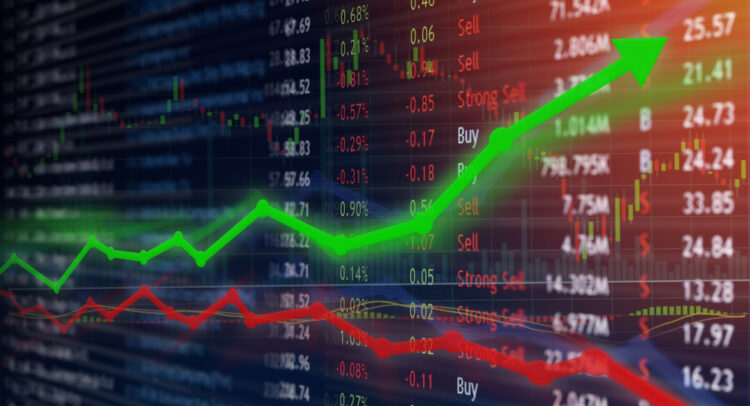U.S. indexes finished the week with gains and closed April on an upward note, as better-than-expected earnings, especially at the technology mega-caps, boosted investor sentiment. Meanwhile, economic data was mixed, with economic growth coming in weaker than was expected, while inflation remains at high levels. As the markets have already priced in a 0.25% rate increase at this week’s FOMC meeting, all eyes will be on the coming economic reports, which will help shape the expectations for the Federal Reserve’s next moves.
Pick the best stocks and maximize your portfolio:
- Discover top-rated stocks from highly ranked analysts with Analyst Top Stocks!
- Easily identify outperforming stocks and invest smarter with Top Smart Score Stocks
For a full listing of all upcoming economic events, check out the TipRanks Economic Calendar.
» April’s ISM Manufacturing PMI – Monday, 05/01 – The report, published by the Institute for Supply Management, provides a reliable outlook on the state of the U.S. manufacturing sector. PMIs are considered to be leading indicators and could signal a shift in the economic cycle. A stronger-than-expected reading, coupled with other important data points, may support the further tightening of the monetary policy, while a pronounced weakness in the PMI data may point to a stronger-than-thought cooldown of the economy.
» April’s ISM Services PMI – Wednesday, 05/03 – The report reveals the current conditions and the outlook for the U.S. service sector. Services contribute 78% of the U.S. GDP, thus the report provides a reliable outlook on the state of the economy. Currently, the expectations are for a slight increase in the reading; a higher-than-expected result could contradict the market’s expectation of a pause in interest increases after this week’s Fed meeting.
» April’s Nonfarm Payrolls – Friday, 05/05 – the monthly jobs report is one of the most important economic indicators, which is closely correlated with the overall performance of the economy and is monitored by policymakers. The Federal Reserve considers developments in the labor market when setting its policies, which then impact the equity markets.



















